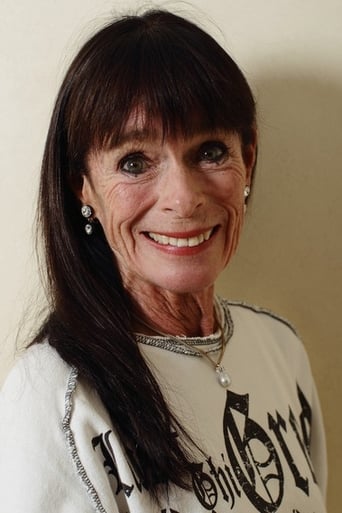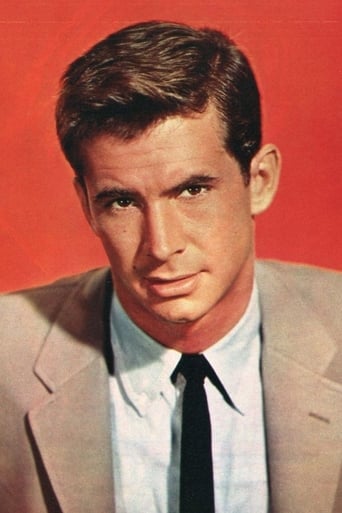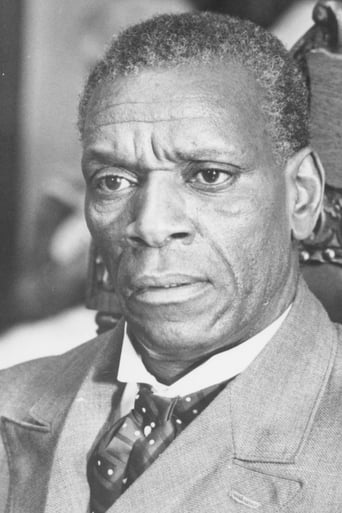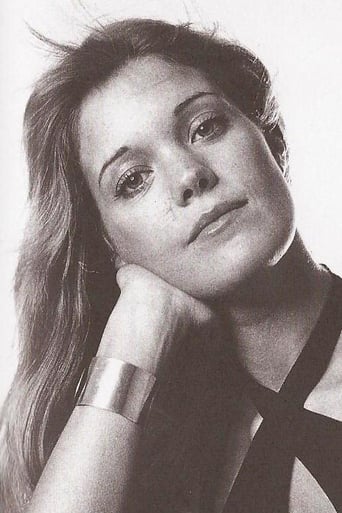ThiefHott
Too much of everything
NekoHomey
Purely Joyful Movie!
Hadrina
The movie's neither hopeful in contrived ways, nor hopeless in different contrived ways. Somehow it manages to be wonderful
Dana
An old-fashioned movie made with new-fashioned finesse.
Tin_ear
This film had a lot going for it: Decent dialogue, and great acting by Perkins and Chaplin.The cinematography is pretty good for a low-budget, minimalist film too. The problem is the ending.Perhaps I'm to blame for expecting an over-the-top movie like Fatal Attraction. I expected a slightly more profound, emotional climax after all the buildup. The stalker character seems legitimately deranged, albeit in a subtle, slow-burning, methodical way. But the character is wasted. Whereas Fatal Attraction had a cartoon ending, here it is a pathetic whimper. The film intensifies the paranoia, and it does manage a good twist. All the characters are well rounded, and the story had a lot of potential, but it doesn't really go anywhere. It just looks that way because the film ends so inexplicably and abruptly, so you are left confused by her scheme. Apparently all the antagonist was after was her ex-husband's credit cards. She does manage to screw up his life a bit, but it almost seems coincidental.
moonspinner55
After carving out eccentric, obtuse molds for her personality while co-starring in Robert Altman's "Nashville" and Alan Rudolph's "Welcome to L.A.", Geraldine Chaplin finally earned a full-bodied (though still utterly eccentric) leading role in Rudolph's "Remember My Name", which was produced by Robert Altman. Chaplin plays an ex-convict and sociopath seeking a reunion with her former husband, a carpenter who has remarried and resides on the west coast; lacking interpersonal skills of any kind, she decides to get his attention by stalking he and his wife and breaking into their house. Intriguing, if unpleasant, modern-day melodrama with noir-ish overtures, made memorable by Chaplin's high-wire performance. Tough and unyielding, and possibly schizophrenic, Chaplin creates a portrait of a woman obsessed by the past, and wilting under the untouchable persona she has created for herself. The narrative goes a little batty in the final stretch, leading to a perplexing conclusion; however, the film's detached tone is very deliberate and assured--it creates a monotone ambiance which is hard to shake off. Director Rudolph, who also wrote the screenplay, seems to feel this material very deeply. It's a twisted and melancholy valentine. **1/2 from ****
R Norman
I'm a big fan of Alan Rudolph's. There's something "real" about his movies. I haven't seen this movie in a long time (where do you find it?), but I loved it.There is one scene in which Tony Perkins and Geraldine Chaplin go into a bar. They decide to drink their way through the "menu," and hours later, they are pictured sitting at a table covered with empty glasses of all shapes and sizes, quite inebriated. For some reason, I have never forgotten that scene. (Perhaps because I thought it would be an interesting thing to try.) The movie also introduced me to the blues of Alberta Hunter, which I still love.
Rehema Trimiew
I saw this film last night at the George Eastman House. The announcer said that it would not be released for video because of the rights to the soundtrack. The singer died without releasing the rights. In any event, I found it fascinating. However, the conclusion seemed rushed and didn't clarify the motives of the protagonist Emily.Don't read further if you haven't seen it!!!---- All of a sudden Emily gets Neil to her place, sleeps with him, steals his credit card and then drives down the road that she drove in on at the beginning of the film. As languid as the rest of the film is, this happens so quickly you don't understand the meaning or purpose to Emily's actions. I felt like I wished I'd brought someone with me to the film so that we could discuss what the ending might have meant-





